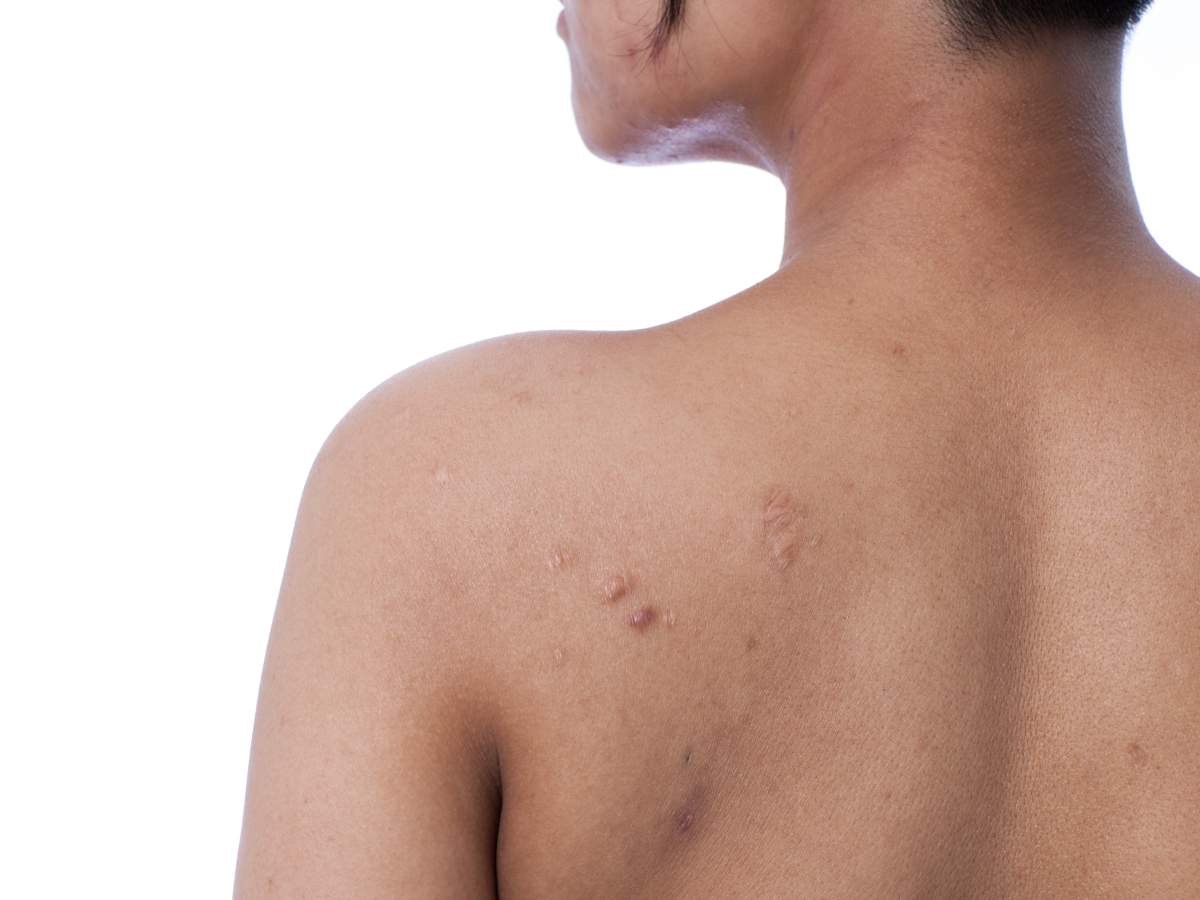Acne is an affliction of the young, right? Not really. Approximately 22 per cent of women, typically between the ages of 20 and 40, suffer from acne (compared to three per cent of men), and it can be stubborn and recurring. While it appears most often on the chin and along the jawline, the back is also a common area — and it’s made all the worse since it’s a lot more difficult to reach or cover up with makeup.

WATCH BELOW: Acne and rosacea treatment
“In women and men, acne can be a sign of a hormonal imbalance,” says Dr. Paul Cohen, dermatologist and director of Rosedale Dermatology Centre in Toronto. “I usually ask my female patients about their menstrual cycle because one of the better treatments is the birth control pill. In men, I usually recommend targeted cleansers or topical creams, although they can be difficult to apply on your back. In some cases, I might also prescribe antibiotics.”
If there is one piece of good news, it’s that all acne is created equal. Typically speaking, the products used to treat acne on your face will also work for that on any other area of your body, as long as you find the right regimen.

Get weekly health news
Causes of bacne
The reason acne can appear on your back is because it’s a very large area of skin, which also makes it a large area of oil secretion. When the pores get clogged with dirt or skin cells and the oil cannot be released, they cause inflammation that results in bacne.
It can also be triggered if heat and sweat are trapped in the area by things like athletic equipment, tight-fitting clothing or backpacks.
“It’s possible that food can also affect acne,” says Dr. Jason Rivers, president of the Acne and Rosacea Society of Canada, and points to dairy as a likely culprit.
Cohen points to protein powders, like those used in shakes, and foods with a high glycemic load, like potatoes, white rice, white bread, candy and sugary drinks as also being problematic.
READ MORE: Which acne home remedies actually work?
“We used to think that diet didn’t affect acne, but now we urge people to be cautious,” Cohen says.
How to treat it
With proper care, it is possible to manage bacne on your own. However, the experts say, it starts with recognizing that your back needs just as much TLC as your face.
#1 Don’t forget your back
“People aren’t as conscientious about washing their back as they are about their face or hair,” Cohen says. And as a result, there can be a buildup of pore-clogging dirt and oil. (And no, the run-off of your shampoo is not sufficient for cleansing your skin. In fact, the residue could only contribute to your bacne.)
Although that’s no reason to slough your back raw with a loofah. It’s OK to use a brush to cleanse your back, but do it gently because bacne can be irritated and that will only be exacerbated if you’re using a topical cream.
#2 Wash with cleanser
“Use a gentle cleanser, especially after working out or doing anything that will cause you to sweat,” Rivers says.
Look for a cleanser with benzoyl peroxide or salicylic acid, and then follow up with a topical retinoid, which will help keep dead skin from clogging your pores.
READ MORE: 7 most popular essential oils and how they work
When you workout, it’s also recommended that you wear moisture-wicking fabrics to prevent overheating or excessive sweating, and try to shower as soon after exercising as possible.
#3 Avoid using a moisturizer
Unless your back is really dry, you don’t need to put moisturizer on it, as this could only contribute to clogging pores. If you do feel very dry or itchy, Cohen says to opt for a moisturizing lotion versus a cream, because it’s more watery and less likely to be occlusive on skin.










Comments
Want to discuss? Please read our Commenting Policy first.